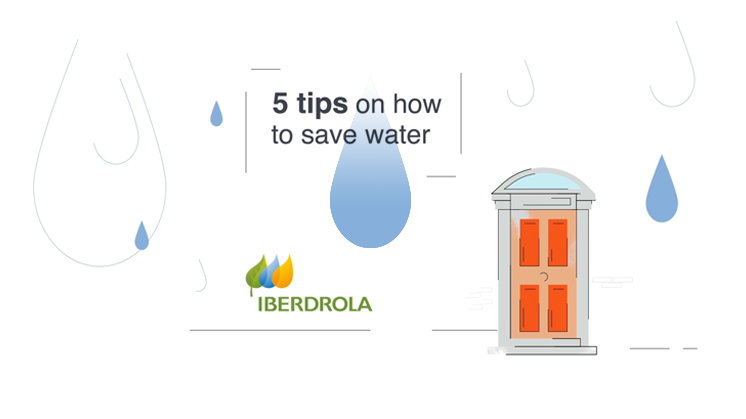Water use: Good habits
Use water responsibly: don't waste it
Salt water makes up over 97% of the water on the planet. Two thirds of the fresh water is trapped in glaciers and the polar ice caps, and most of the remaining third is in the ground or in underground aquifers. Conclusion: there is very little water available for living things.
GLOBAL USE OF WATER AND
FORECAST CONSUMPTION
70%
19%
11%
Agriculture
Industry
Domestic
CURRENT CONSUMPTION
2030
2050
%
DOMESTIC USE
382
900
772
+50.2
ENERGY
470
828
766
+38.6
INDUSTRIAL USE
314
672
1.135
+72.3
AGRICULTURE
2.672
4.500
4.488
+40.5
TOTAL
3,838
6,900
7,161
+46.4
Source: Water Resources Group: OCDE; Citi Research. Panda Agriculture and Water Fund Analysis.
More than 2 billion people (26% of the world's population) do not have access to safe drinking water, with 46% of the population lacking access to sanitation, according to UNESCO in its latest report. The report also predicts that by 2050 more than 1.5 billion people will suffer from water scarcity in major cities.
The rise in the use of industrial and domestic water
International organisations estimate that total demand for water will double by 2050 due to the growing demand for water in industry and agriculture, as well as the rise in domestic consumption caused by mass migration from rural areas to cities. Today 3.9 billion people live in cities; by 2030, this number will be 5 billion.
In the last two decades, the amount of fresh water available per person has been reduced by more than 20 %, with serious problems in North Africa and West and South Asia. The problem is growing in the most economically challenged countries where 74% of the rural population lacks access to safe drinking water according to the Food and Agriculture Organization of the United Nations. Enlace externo, se abre en ventana nueva. That is why all of us must use water responsibly and learn habits that reduce water consumption, such as, for example:
Enlace externo, se abre en ventana nueva. That is why all of us must use water responsibly and learn habits that reduce water consumption, such as, for example:
Five tips on how to save water. Video voice transcription [PDF] External link, opens in new window.
How to use water the right way?
With these simple habits we will be able to considerably reduce water consumption whilst also using water properly:
 Periodically examine water taps, plumbing and piping, both indoors and outside of our homes, to prevent leaks.
Periodically examine water taps, plumbing and piping, both indoors and outside of our homes, to prevent leaks.
 Use rainwater catchment systems to collect water for use in the bathroom or to water plants...
Use rainwater catchment systems to collect water for use in the bathroom or to water plants...
 Collect the shower water that comes out while waiting for it to heat up to use it for other purposes.
Collect the shower water that comes out while waiting for it to heat up to use it for other purposes.
 Install water-saving bathroom fittings. If your cistern is not ecological, drop a bottle filled with sand into it.
Install water-saving bathroom fittings. If your cistern is not ecological, drop a bottle filled with sand into it.
 Do not use the toilet as a waste bin: each flush of the toilet wastes 6 to 10 litres of water.
Do not use the toilet as a waste bin: each flush of the toilet wastes 6 to 10 litres of water.
 Install aerators on your taps to mix the water stream with air, saving up to 40% of the water.
Install aerators on your taps to mix the water stream with air, saving up to 40% of the water.
 Cover swimming pools when they are not in use to reduce water evaporation.
Cover swimming pools when they are not in use to reduce water evaporation.
 Wash vehicles in facilities designed for that purpose.
Wash vehicles in facilities designed for that purpose.
For years now companies and institutions have been researching and implementing vital technological advances to achieve rational water consumption both industrially and domestically. But sustainable consumption is everyone's responsibility. As John Fitzgerald Kennedy said, "anyone who can solve the problems of water will be worthy of two Nobel prizes — one for peace and one for science."
Circular economy model at the Iberdrola Group
At Iberdrola, we work to be more respectful of nature in our three strategic sustainability areas: climate action, biodiversity protection, and circular economy.
For this reason, our sustainable business model is based on the circular economy model, a system for making the most of resources in which priority is given to reducing the use of new raw materials through efficiency in processes, product life extensions, and a firm commitment to the reuse and recycling of materials.





